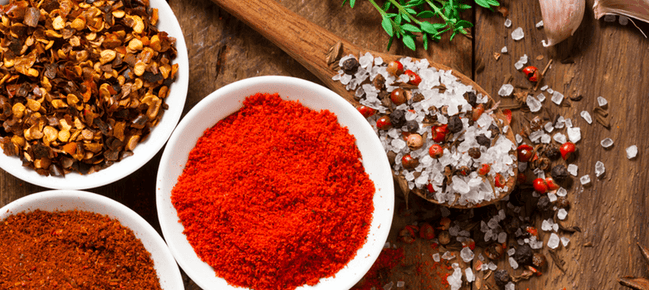
Natural ways to reduce inflammation
Inflammation is one of your body’s natural defence mechanisms. It helps your body to heal and is a vital tool for a healthy immune system.
When you stub your toe or cut yourself, your immune system jumps right into action. Extra white blood cells are sent to the injured area to surround and protect it. A similar thing happens when you have a cold or virus. Your white blood cells protect and repair your body, so you can bounce back to better health.
This is called acute inflammation. It’s a rapid response from your body that lasts a relatively short amount of time and is an important part of staying healthy.
There is also chronic inflammation and this type of inflammation can lead to health problems. Chronic inflammation is your body’s response to exposure to unwanted substances like cigarette smoke, stress or even foods high in sugar, salt and fat.
Chronic inflammation is a constant, low level inflammation that can increase with age and also if you are carrying extra weight. It has been linked to the development of heart disease, diabetes, depression, Alzheimer’s disease and even cancer.
In some situations, the immune system can go haywire and produce chronic inflammation without any obvious trigger. This is the case with auto immune diseases like inflammatory bowel disease (IBD).
So, what can you do to reduce chronic inflammation in your body?
While certain things in our environment can increase inflammation, others can work as natural anti-inflammatories for the body.
Here are 6 natural ways to reduce inflammation in your body.
Eat more plants - Pack your plate with a wide range of different coloured fruits and vegetables rich in polyphenols, placing priority on plant proteins like legumes, nuts and seeds in place of red and processed meats. By eating a variety of colourful plant foods you get all their goodness and the added benefit of the way their nutrients all work together.
- Feed your gut – Giving your gut the perfect fuel is essential to maintaining diversity and balance in your gut bacteria, and a healthy gut has a huge impact on our overall health. The gut’s main fuel source – fibre – and polyphenols are broken down by the gut microbes into short chain fatty acids (SCFA) that keep the lining of the gut healthy. These SCFA play a role in reducing inflammation, which improves absorption of nutrients, supports our immune system, regulates our mood and protects against bowel cancer.
Switch to wholegrains – Try to cut out as many refined carbohydrates as possible, like white bread, white rice and highly processed baked goods. Whenever possible switch to wholegrain instead. A healthy anti-inflammatory diet includes lots of fruits, vegetables, wholegrains, legumes and the use of extra-virgin olive oil – like the Mediterranean diet or a vegetarian diet.
Embrace good fats - Healthy omega 3 fats have been linked with lower inflammatory markers – the signs of inflammation. Try to regularly include plant sources of omega 3 like walnuts, chia and flax seeds into your diet. These are ideal breakfast cereal toppers or tasty additions to DIY trial mixes for easy snacks on-the-go.
Spice it up – Flavour your food with plenty of herbs and spices. As well as being tasty, many herbs and spices have anti-inflammatory properties. This includes turmeric, garlic, cinnamon, cloves, sage, rosemary, pepper and ginger.
Move it - A tough workout can trigger acute inflammation as your muscles heal and recover. However, in the longer term, regular exercise has been shown to lower levels of chronic inflammation in the body. How much exercise? Aim to get active (at least 10,000 steps a day), most days of the week and the exercise should be a moderate intensity – when you can still talk, but are too puffed to sing.
Get balanced – When you get stressed, your body tries to fight it like an infection. That means, if stress is a constant part of your life, the inflammation could be constant too. It’s important to find time to relax, get some balance back and discover what stress management tactics work best for you.
Want more information?
Our nutrition fact sheets, created by accredited dietitians, provide the latest nutrition and lifestyle information to help you understand which foods are the best to eat. Click here to see the gut health nutrition fact sheets.
Subscribe to Wholicious Living to stay up-to-date with the latest health and nutrition advice.

The latest nutrition advice, plus health and wellness tips delivered to your inbox monthly
